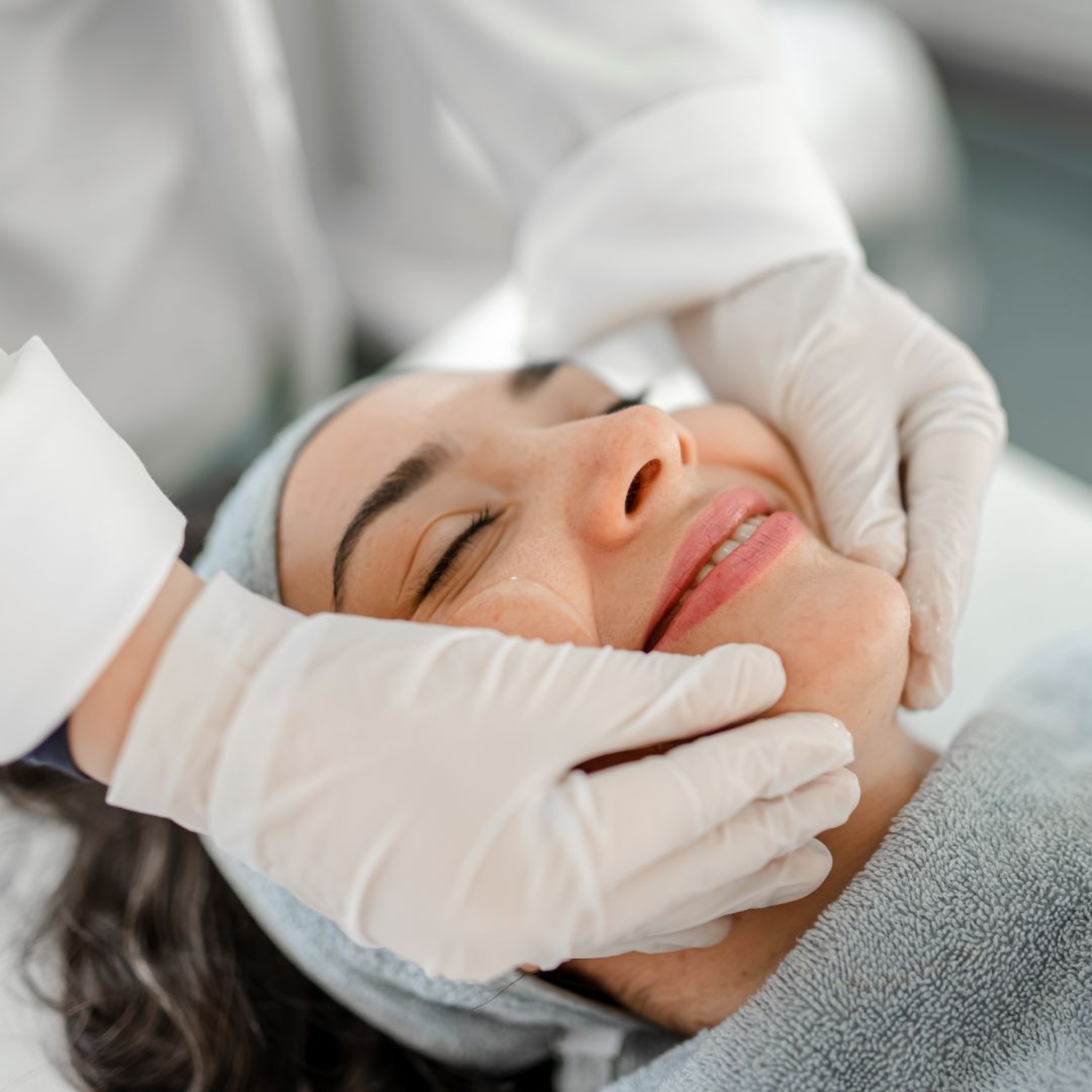What does it mean to be a sustainable beauty brand in 2022?


Research shows that shoppers feel it is no longer enough to meet the minimum standards of sustainability. From greenwashing legislation to positive impact claims, beauty brands need to be more transparent and communicative about their certifications. It’s time for the industry to keep up, or risk losing shopper trust.
For British Beauty Week, I was joined by members of the Sustainable Beauty Coalition, B Corp Beauty Coalition and sustainability marketing technology Provenance to discuss what it means to be a planet-positive beauty brand in 2022 and how brands can keep up with the evolving demands of the conscious shopper.
Watch the discussion on positive-planet beauty here.
Where are we with sustainable beauty right now?
“We all know that we are in a climate emergency and natural, organic and sustainability have become the latest buzzwords,” says Jayn Sterland, country manager for Weleda and Chair of the Sustainability Beauty Coalition. “We have to have a holistic view of nature and not pretend that one buzzword is greener than another.”
According to the Pull Agency, 69% of consumers are confused by or don’t believe claims made by health and beauty brands about sustainability. In the Deloitte Sustainability and Consumer Behaviour Report 2022, 38% of shoppers want clearer information on the sustainability of products and services and 35% of shoppers want improved transparency and availability of information on the sustainability credentials of companies. Add to this the 38% of consumers don't trust companies to be honest about their environmental impact (Mintel, 2022) and there is a lot of work to be done.
“At a minimum, brands should provide evidence with fact-checked information on their sustainability claims that sit inside the brand and retailer website on their product pages, ensuring shoppers have information about sustainability they can trust, killing greenwashing, enabling a level playing field and most importantly showing the evidence behind the claim in a way that shoppers can understand,” says Jessi Baker, founder and CEO at Provenance, a software solution that surfaces claims and certifications on the product page, so people doing their regular online shopping can find information on the product’s sustainability claims, be that Vegan, B Corp, Widely Recyclable Packaging or a Soil Association Organic certification, at the point of sale.
Marie Claire Newsletter
Celebrity news, beauty, fashion advice, and fascinating features, delivered straight to your inbox!
Baker started Provenance with the goal of solving this problem, as she wanted trustworthy, consistent information on the brand or retailer's website.
“It annoyed me that I had to learn a new language for sustainability and to find independently fact-checked information I needed to go download a complex app or something. If a brand just makes a claim about themselves or a product - it’s just the brand's word for it - they could be marking their own homework.”
Another solution is for brands to publish impact reports, making their information transparent at scale. For smaller brands, where this can be challenging as certifications are not free, Provenance recommends using transparency and sharing evidence to support claims as a first step, and then as fast as possible to enable those claims to be verified and connect with certifications.
Of course one brand can’t do it on their own, and so working together is key. “We all have our own, unique areas of expertise and coming together benefits everyone,” says Shaun Russell, founder of Copenhagen-based fragrance brand Skandinavisk and chair of the supervisory board of the B Corp Beauty Coalition. “We need to explore new solutions by working together as competitors - if you want to go fast, go alone - but if you want to go far go together.”
What is being done about greenwashing?
With the rise of the ‘green’ beauty trend comes the risk of greenwashing and customers can be quick to identify genuine positive impact amidst the marketing fluff. “Greenwashing is pretending to be more natural than you actually are and our industry is rife with it,” says Sterland.
The Competition and Markets Authority (CMA) is cracking down on claims in the UK, and the Federal Trade Commission (FTC) is preparing to update their ‘Green Guides’ in the US. CMA did a study in 2021 that saw 40% of green claims could be misleading. The three key recommendations from the CMA to brands (and for shoppers to look out for) are:
- Prove any claims with clear, relevant evidence that shoppers can access.
- Use shopper-friendly, specific language.
- Use recognised industry certifications and avoid self-accreditation.
Without publicly-available evidence or certifications supporting claims, brands run the risk of being hit with a lawsuit and as more and more brands come under fire for greenwashing, it’s clear that there’s a higher reward in genuine, verified impact claims and credentials.
How are proof points helping?
Proof points are the evidence that we are who we say we are. They are the facts and data. Brands that are doing it interestingly right now are Graydon Skincare using up-cycled materials, SBTRCT are reducing carbon emissions and Doers of London are protecting water quality. The most frequently used Proof Points by brands are Vegan, Leaping Bunny or PETA Cruelty Free, Partly / Widely Recyclable Packaging, FSC, Zero Plastic Inside and Donates to Charity. For the first time we’ve seen Carbon Offsetting as one of the top 10 most used Proof Points.
Slapping a label or a meaningless phrase on beauty products is no longer effective: customers want to know the ‘why’ - real content from the supply chain.
“We don’t want to alienate people and every brand is on a journey to be sustainable and regenerative,” says Baker. “We need to help brands to help shoppers spot progress, make sure consumers demand change but also help brands making genuine progress to win. Shoppers hold the power of sharing stories - not just questioning, but celebrating the brands that are making progress.”
The key message to this talk is that we hold the power - “We use the saying vote with your wallet, vote everyday. Our vote really counts when it comes to cash because business really responds to the way in which money is being spent,” says Russell. “So if citizens are spending their money differently - businesses will adapt faster than you can blink.”
To keep up to date with a quickly evolving sustainable beauty terminology, head to the Sustainable Beauty Coalition Planet Positive Beauty Guide on the British Beauty Council website.
Lisa Oxenham is a trailblazing beauty editor, journalist, stylist, and creative director with over 20 years of transformative impact in the beauty industry. As the Beauty and Style Director at Marie Claire UK, she orchestrates high-profile shoots with celebrities and influencers, creating visually stunning and globally resonant content.
A passionate advocate for sustainability, Lisa serves on the Advisory Board for the British Beauty Council's Sustainable Beauty Coalition and the Media Advisory Board. She is also an ambassador for the Soil Association certification and the Amazon Research Institute. Through her "In The Loop" column, she keeps readers informed about the latest advancements in sustainable beauty and supports brands that champion environmental causes, emphasising the need for the beauty industry to reset its priorities.
Lisa's influence extends beyond words; she directs inspiring short films on sustainability and challenges in the beauty industry and is a sought-after public speaker. Recently recognised in the Who’s Who in Natural Beauty 2023, she also champions mental health and eco-conscious practices, demonstrating that glamour and environmental responsibility can coexist beautifully.
-
 Jump training workouts are being hailed as the best longevity workout you can do - a top personal trainer shares their guide
Jump training workouts are being hailed as the best longevity workout you can do - a top personal trainer shares their guideJump to it...
By Katie Sims
-
 I’m a bride who loves injectables—here are the dos and don’ts of getting them ahead of your wedding
I’m a bride who loves injectables—here are the dos and don’ts of getting them ahead of your weddingA game-changer, if done correctly
By Tori Crowther
-
 The 90s-inspired wispy, ‘sitcom fringe’ is my new obsession—it’s lightweight and perfect for summer
The 90s-inspired wispy, ‘sitcom fringe’ is my new obsession—it’s lightweight and perfect for summerBring back the nostalgia
By Jazzria Harris